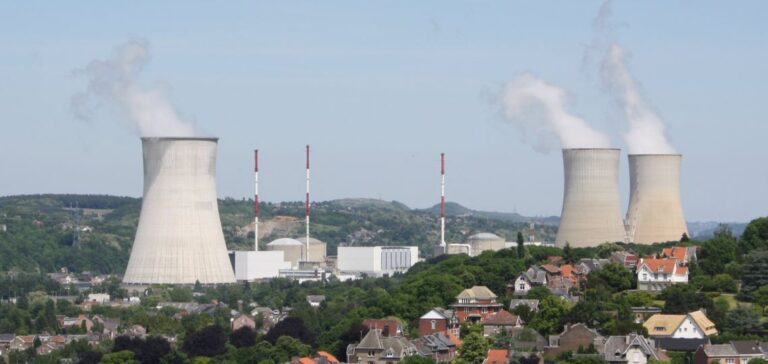Belgium’s federal parliament voted on May 15 in favour of a bill that legalises the extension of the Doel-4 and Tihange-3 nuclear reactors’ operation until 2045. The same law lifts the country’s ban on building new reactors. The vote passed with 102 in favour, eight against, and 31 abstentions. The two reactors, with respective capacities of 1,090 MW and 1,094 MW, were initially scheduled for shutdown by the end of 2025 under legislation adopted over twenty years ago.
Two decades of legislative blockage reversed
In 2003, Belgium’s coalition government, including the Green party Groen, banned new nuclear construction and committed to shutting all existing reactors by the end of 2025. The gradual closure of these units has since been delayed multiple times, especially in the context of growing energy instability in Europe following Russia’s 2022 invasion of Ukraine.
Disruptions to fossil fuel supply and concerns over grid reliability reshaped national energy priorities. In February, the newly formed coalition announced plans to extend Doel-4 and Tihange-3 and permit new projects. The May 15 vote now makes this decision legally binding.
Operators express diverging views
The two reactors are 89.8% owned by Electrabel, the Belgian subsidiary of France’s Engie group, with a 10.2% minority stake held by Luminus, a subsidiary of French state-owned nuclear company EDF. Engie and the Belgian government signed an agreement in 2023 to extend operations to 2035, but Engie has voiced reluctance about operating the reactors beyond that date.
Engie Chief Executive Officer Vincent Verbeke reiterated in January 2025 that operating past 2035 would be “unthinkable” for the group. Since 2021, Engie has redirected its Belgian investments towards renewable energy and natural gas, moving away from nuclear operations.
Nuclear remains central to Belgium’s power mix
Other Belgian reactors – Doel-1, Doel-2, and Tihange-1 – remain scheduled for permanent shutdown by the end of 2025. This schedule is unaffected by the new legislation. Doel-3 and Tihange-2 were permanently shut in September 2022 and January 2023, respectively.
According to data from the Belgian Nuclear Forum (BNF), nuclear accounted for 55.3% of Belgium’s electricity production on May 18, compared to 27.5% for renewable sources. Mark Nelson, a nuclear engineer and managing director of the Chicago-based consultancy Radiant Energy Group, described the former phase-out plan as “the most destructive in history,” adding that the legal revision would lead to a “nasty battle” to ensure continued operation after 2035.






















